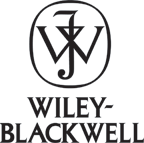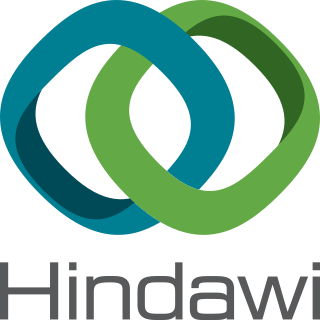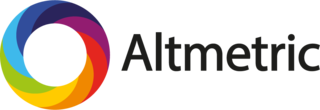
In academic publishing, a scientific journal is a periodical publication designed to further the progress of science by disseminating new research findings to the scientific community. These journals serve as a platform for researchers, scholars, and scientists to share their latest discoveries, insights, and methodologies across a multitude of scientific disciplines. Unlike professional or trade magazines, scientific journals are characterized by their rigorous peer review process, which aims to ensure the validity, reliability, and quality of the published content. With origins dating back to the 17th century, the publication of scientific journals has evolved significantly, playing a pivotal role in the advancement of scientific knowledge, fostering academic discourse, and facilitating collaboration within the scientific community.

Academic publishing is the subfield of publishing which distributes academic research and scholarship. Most academic work is published in academic journal articles, books or theses. The part of academic written output that is not formally published but merely printed up or posted on the Internet is often called "grey literature". Most scientific and scholarly journals, and many academic and scholarly books, though not all, are based on some form of peer review or editorial refereeing to qualify texts for publication. Peer review quality and selectivity standards vary greatly from journal to journal, publisher to publisher, and field to field.

Elsevier is a Dutch academic publishing company specializing in scientific, technical, and medical content. Its products include journals such as The Lancet, Cell, the ScienceDirect collection of electronic journals, Trends, the Current Opinion series, the online citation database Scopus, the SciVal tool for measuring research performance, the ClinicalKey search engine for clinicians, and the ClinicalPath evidence-based cancer care service. Elsevier's products and services include digital tools for data management, instruction, research analytics, and assessment. Elsevier is part of the RELX Group, known until 2015 as Reed Elsevier, a publicly-traded company. According to RELX reports, in 2022 Elsevier published more than 600,000 articles annually in over 2,800 journals; as of 2018 its archives contained over 17 million documents and 40,000 e-books, with over one billion annual downloads.
BioMed Central (BMC) is a United Kingdom-based, for-profit scientific open access publisher that produces over 250 scientific journals. All its journals are published online only. BioMed Central describes itself as the first and largest open access science publisher. It was founded in 2000 and has been owned by Springer, now Springer Nature, since 2008.
A public health journal is a scientific journal devoted to the field of public health, including epidemiology, biostatistics, and health care. Public health journals, like most scientific journals, are peer-reviewed. Public health journals are commonly published by health organizations and societies, such as the Bulletin of the World Health Organization or the Journal of Epidemiology and Community Health. Many others are published by a handful of large publishing corporations that includes Elsevier, Wolters Kluwer, Wiley-Blackwell, Springer Science+Business Media, and Informa, each of which has many imprints. Many societies partner with such corporations to handle the work of producing their journals.
Springer Science+Business Media, commonly known as Springer, is a German multinational publishing company of books, e-books and peer-reviewed journals in science, humanities, technical and medical (STM) publishing.

Google Scholar is a freely accessible web search engine that indexes the full text or metadata of scholarly literature across an array of publishing formats and disciplines. Released in beta in November 2004, the Google Scholar index includes peer-reviewed online academic journals and books, conference papers, theses and dissertations, preprints, abstracts, technical reports, and other scholarly literature, including court opinions and patents.
Nature Portfolio is a division of the international scientific publishing company Springer Nature that publishes academic journals, magazines, online databases, and services in science and medicine.
Medknow Publications also known as Wolters Kluwer Medknow or simply Medknow, is a publisher of academic journals on behalf of learned societies and associations. Previously an independent Indian publisher, Medknow is now part of within Wolters Kluwer's Health Division, and is part of Wolters Kluwer India.

Wiley-Blackwell is an international scientific, technical, medical, and scholarly publishing business of John Wiley & Sons. It was formed by the merger of John Wiley & Sons Global Scientific, Technical, and Medical business with Blackwell Publishing in 2007.

Hindawi was a publisher of peer-reviewed, open access, scientific journals active in scientific, technical, and medical (STM) literature. It was founded in 1997 in Cairo, Egypt, and purchased in 2021 for $298 million by John Wiley & Sons, a large US-based publishing company.
Academic journal publishing reform is the advocacy for changes in the way academic journals are created and distributed in the age of the Internet and the advent of electronic publishing. Since the rise of the Internet, people have organized campaigns to change the relationships among and between academic authors, their traditional distributors and their readership. Most of the discussion has centered on taking advantage of benefits offered by the Internet's capacity for widespread distribution of reading material.
ResearchGate is a European commercial social networking site for scientists and researchers to share papers, ask and answer questions, and find collaborators. According to a 2014 study by Nature and a 2016 article in Times Higher Education, it is the largest academic social network in terms of active users, although other services have more registered users, and a 2015–2016 survey suggests that almost as many academics have Google Scholar profiles.
ReadCube is a technology company that develops reference management software. It is currently available as a web-based platform, on mobile operating systems iOS and Android, and as a desktop application. The legacy ReadCube and Papers applications are no longer being actively developed.
An article processing charge (APC), also known as a publication fee, is a fee which is sometimes charged to authors. Most commonly, it is involved in making an academic work available as open access (OA), in either a full OA journal or in a hybrid journal. This fee may be paid by the author, the author's institution, or their research funder. Sometimes, publication fees are also involved in traditional journals or for paywalled content. Some publishers waive the fee in cases of hardship or geographic location, but this is not a widespread practice. An article processing charge does not guarantee that the author retains copyright to the work, or that it will be made available under a Creative Commons license.

Meta ULC was a Canadian unlimited liability corporation performing big data analysis of scientific literature, which was acquired by the Chan Zuckerberg Initiative and shut down in 2021, effective in 2022.

Altmetric, or altmetric.com, is a data science company that tracks where published research is mentioned online, and provides tools and services to institutions, publishers, researchers, funders and other organisations to monitor this activity, commonly referred to as altmetrics. Altmetric was recognized by European Commissioner Máire Geoghegan-Quinn in 2014 as a company challenging the traditional reputation systems.

Sci-Hub is a shadow library website that provides free access to millions of research papers, regardless of copyright, by bypassing publishers' paywalls in various ways. Unlike Library Genesis, it does not provide access to books. Sci-Hub was founded in Kazakhstan by Alexandra Elbakyan in 2011, in response to the high cost of research papers behind paywalls. The site is extensively used worldwide. In September 2019, the site's operator(s) said that it served approximately 400,000 requests per day. In addition to its intensive use, Sci-Hub stands out among other shadow libraries because of its easy use/reliability and because of the enormous size of its collection; a 2018 study estimated that Sci-Hub provided access to 95% of all scholarly publications with issued DOI numbers, and on 15 July 2022, Sci-Hub reported that its collection comprised 88,343,822 files.
In research, a paper mill is a business that publishes poor or fake journal papers that seem to resemble genuine research, as well as sells authorship.








